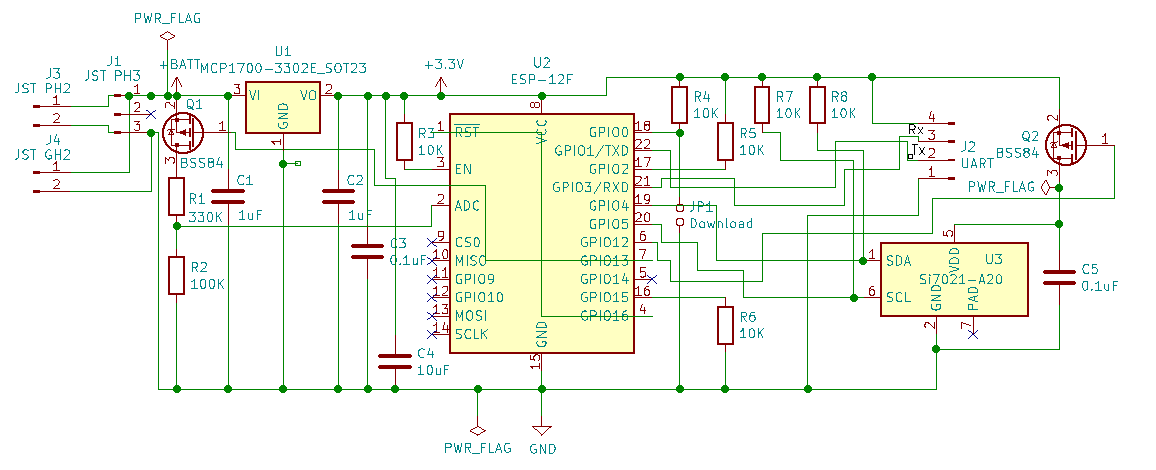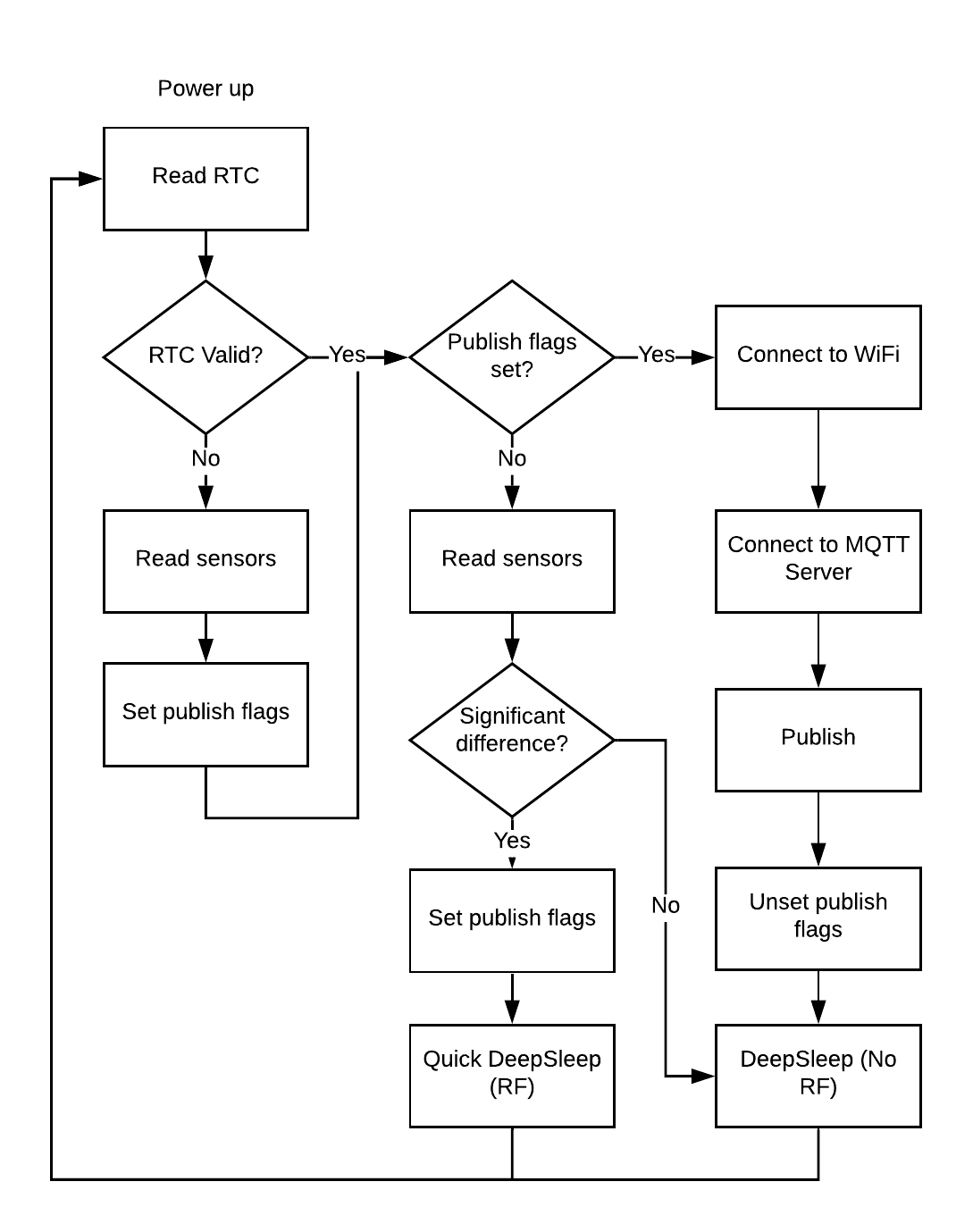Low power ESP-12F MQTT temperature/humidity sensor
Hi all,
I couldn't find a (rechargeable) battery powered temperature/humidity sensor over MQTT that was cheap (Shelly sell one for £20) so over the last year I've made one using:
1. ESP-12F
2. Si7021 temp/humidity sensor
3. MCP1700 LDO
4. JST Li-Ion battery
5. Two BSS84 mosfets to switch on the temp sensor and voltage divider for battery voltage measurement


Lots of details on its project website and Github.
I've got to around 9 months usage on a 1200 mAh battery, which is better than my target of 6 months, although I note Shelly claim 18 months so any tips on further improving battery usage very welcome!
Here is the schematic:

The software flow is:

Total cost is around £8 per unit, which I could get down by using a cheaper sensor.
I've found the "1V" ADC to be pretty variable - that plus temperature variance of the voltage divider means the battery voltage measurement is not great.
Any feedback on hardware/software welcome!
Amadeus
I couldn't find a (rechargeable) battery powered temperature/humidity sensor over MQTT that was cheap (Shelly sell one for £20) so over the last year I've made one using:
1. ESP-12F
2. Si7021 temp/humidity sensor
3. MCP1700 LDO
4. JST Li-Ion battery
5. Two BSS84 mosfets to switch on the temp sensor and voltage divider for battery voltage measurement


Lots of details on its project website and Github.
I've got to around 9 months usage on a 1200 mAh battery, which is better than my target of 6 months, although I note Shelly claim 18 months so any tips on further improving battery usage very welcome!
Here is the schematic:

The software flow is:

Total cost is around £8 per unit, which I could get down by using a cheaper sensor.
I've found the "1V" ADC to be pretty variable - that plus temperature variance of the voltage divider means the battery voltage measurement is not great.
Any feedback on hardware/software welcome!
Amadeus